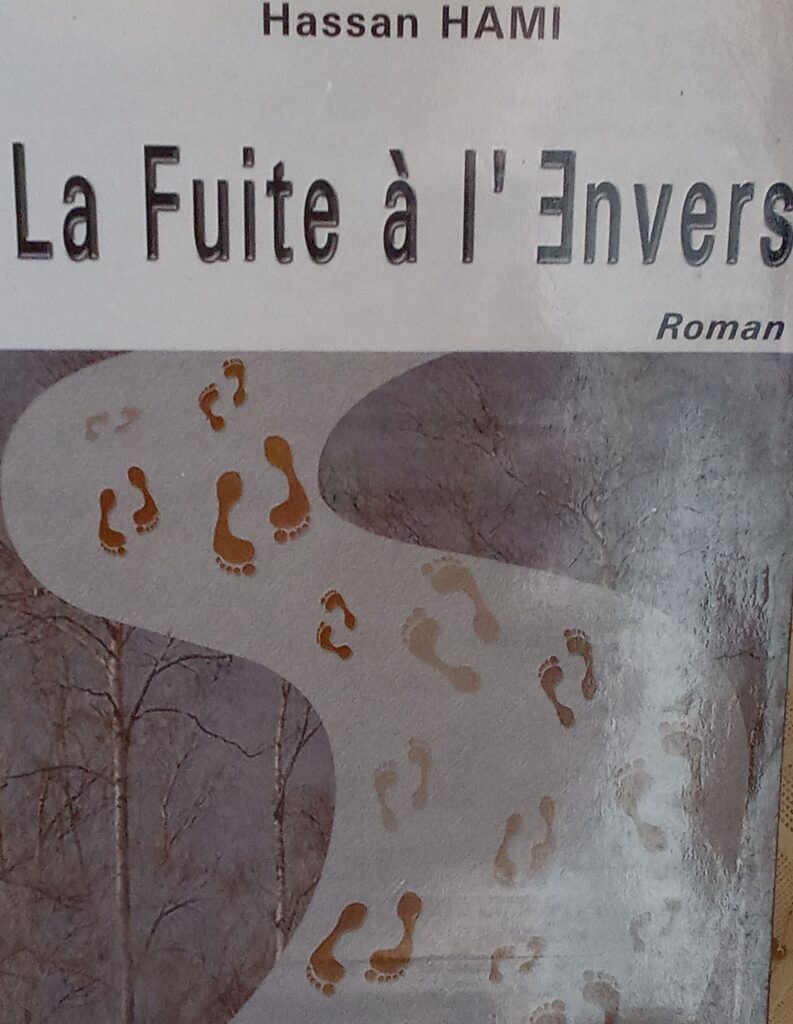Synopsis: « La fuite à l’envers » en Français
L’Europe décide d’organiser un référendum sur le traité de Maastricht, censé cimenter l’unité
politique européenne. Nous sommes au début des années 1990. Ghafour, citoyen français
d’origine maghrébine, décède. La communauté prend la décision d’évacuer son corps vers sa
ville natale pour y être enterré. Christine, sa veuve de confession juive, n’est pas d’accord.
Ghafour devient un « enjeu » pour toutes sortes de chantages politiques et sociaux. Toutes les
composantes de « La Banlieue » sont impliquées dans ce chantage, y compris les politiciens, les
sans-abri, les anciens athlètes, les associations de femmes, les anciens combattants, les
mouvements radicaux, les journalistes, etc.
C’est l’histoire d’un événement inattendu qui devient un alibi pour tout le monde afin d’enfumer
le « non-dit », le « non-pensé », et d’enflammer l’hypocrisie d’une communauté qui commence,
à la fin, à comprendre que les gens ont été utilisés comme boucs émissaires à d’autres fins.
Le personnage principal nous raconte tout cela tout en essayant de nous faire croire que l’histoire
n’est pas la sienne
Synopsis « La fuite à l’envers » in English
Europe decides to hold a referendum on the Maastricht Treaty, which is supposed to cement
European political unity. We are in the early 1990s. Ghafur, a French citizen of North African
origin, passes away. The community makes the decision to evacuate his corpse back to his
hometown to be buried there. Christine, his widow and a Jewish lady, does not agree. Ghafur
becomes "un enjeu" for all sorts of political and social blackmail. All components of "La
Banlieue" are involved in such blackmail, including politicians, homeless people, former
athletes, women's associations, veterans, radical movements, journalists, etc.
This is a story about how an unexpected event becomes an alibi for everybody to smoke out the
"Untold", the Unthought," and ignite the hypocrisy of a community that starts, in the end, to
understand that people have been used as scapegoats for other purposes.
The main character tells us about all that while attempting to make us believe the story is not his
own.
L'Europe décide d'organiser un référendum sur le Traité de Maastricht, censé cimenter l'unité
politique européenne. Nous sommes au début des années 1990. Ghafour, citoyen français
d'origine maghrébine, décède. La communauté prend la décision d'évacuer son corps au Maroc
pour y être enterré. Cet événement inattendu devient un alibi pour tout le monde afin de broder
sur le « non-dit », le « non-pensé », et d'enflammer l'hypocrisie d'une communauté qui
commence, enfin, à comprendre que les gens ont été utilisés comme boucs émissaires à d'autres
fins que la solidarité affichée.
It's the early 1990s. Europe resolves to hold a referendum on the Maastricht Treaty, which is
supposed to cement European political unity. Ghafour, a French citizen of North African origin,
dies. The community decides to evacuate his body to Morocco for burial. This unexpected event
becomes an alibi for everyone to embroider on the "unspoken," the "unthought," and to inflame
the hypocrisy of a community that is finally beginning to understand that people have been used
as scapegoats for purposes other than the faked solidarity they have been displaying.
